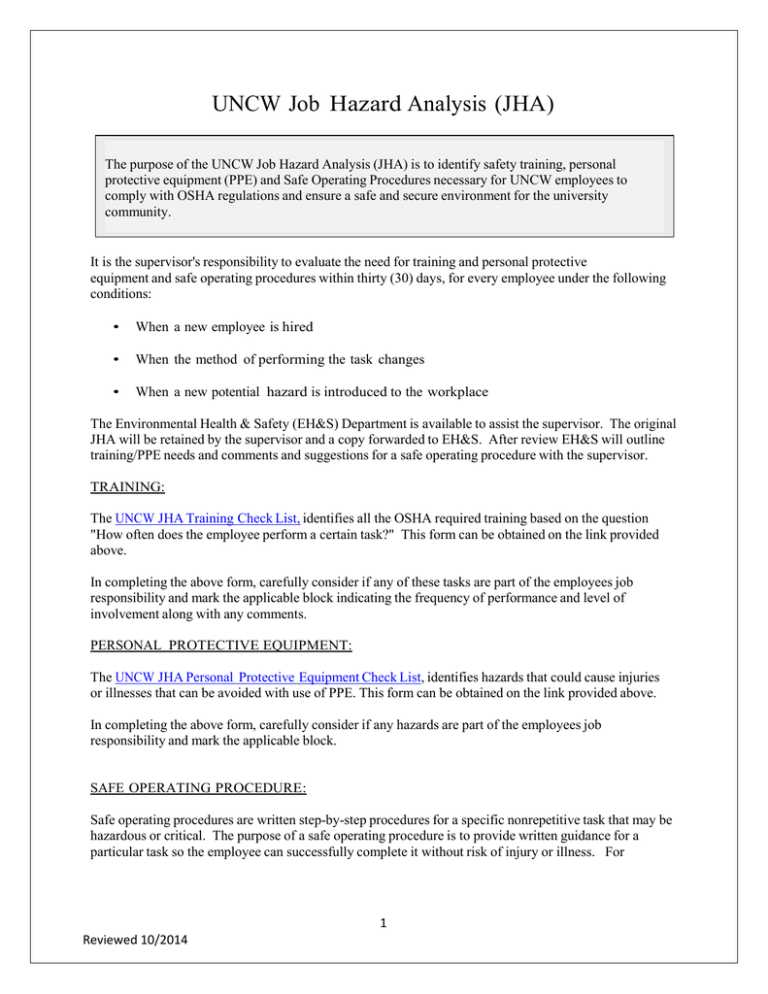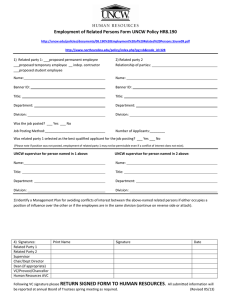UNCW Job Hazard Analysis (JHA)
advertisement

UNCW Job Hazard Analysis (JHA) The purpose of the UNCW Job Hazard Analysis (JHA) is to identify safety training, personal protective equipment (PPE) and Safe Operating Procedures necessary for UNCW employees to comply with OSHA regulations and ensure a safe and secure environment for the university community. It is the supervisor's responsibility to evaluate the need for training and personal protective equipment and safe operating procedures within thirty (30) days, for every employee under the following conditions: • When a new employee is hired • When the method of performing the task changes • When a new potential hazard is introduced to the workplace The Environmental Health & Safety (EH&S) Department is available to assist the supervisor. The original JHA will be retained by the supervisor and a copy forwarded to EH&S. After review EH&S will outline training/PPE needs and comments and suggestions for a safe operating procedure with the supervisor. TRAINING: The UNCW JHA Training Check List, identifies all the OSHA required training based on the question "How often does the employee perform a certain task?" This form can be obtained on the link provided above. In completing the above form, carefully consider if any of these tasks are part of the employees job responsibility and mark the applicable block indicating the frequency of performance and level of involvement along with any comments. PERSONAL PROTECTIVE EQUIPMENT: The UNCW JHA Personal Protective Equipment Check List, identifies hazards that could cause injuries or illnesses that can be avoided with use of PPE. This form can be obtained on the link provided above. In completing the above form, carefully consider if any hazards are part of the employees job responsibility and mark the applicable block. SAFE OPERATING PROCEDURE: Safe operating procedures are written step-by-step procedures for a specific nonrepetitive task that may be hazardous or critical. The purpose of a safe operating procedure is to provide written guidance for a particular task so the employee can successfully complete it without risk of injury or illness. For 1 Reviewed 10/2014 example, a safe operating procedure with appropriate warnings and cautions would best be developed and used for tasks such as confined space entry, lockout-tagout, laser equipment use, etc. Although UNCW safety policies already exist, safe operating procedures are required to provide task specific safety instructions. EH&S can provide a sample program and is available to assist supervisors in developing a safe operating procedure. Upon completion, the original should be kept in the department, a copy provided to the employee and a copy forwarded to EH&S. Reviewed/Revised November 2004 2 Reviewed 10/2014


